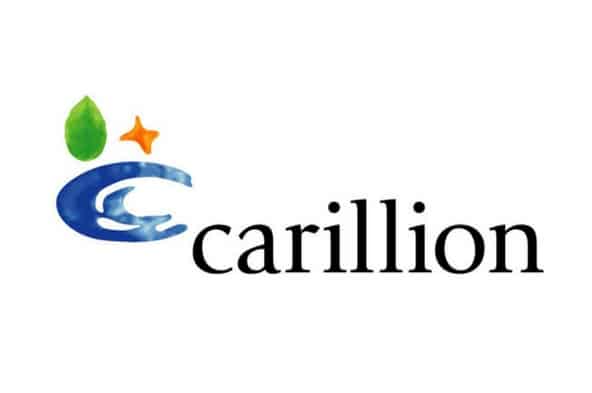Company Voluntary Dissolution
If you no longer want to operate your company, you may be able to close it via a process called company dissolution.
When a company is dissolved, it ceases to exist and is struck off from the register at Companies House. The company will no longer be able to trade with its customers and will be viewed, from a legal perspective, to have closed down.
Not every company can close via dissolution. In order to dissolve your company, it will need to stop trading for several months. You’ll also need to ensure that the company doesn’t have any debts, such as payments for products and services to suppliers or other creditors.
If you own a company that you want to dissolve, please contact us. Our experienced team can provide you with the advice you need to legally dissolve your company. You can also continue reading below to learn more about the company voluntary dissolution process.
Company Dissolution: The Basics
The company dissolution process allows you to close down your debt-free company at a lower cost than insolvency procedures such as liquidation.
Company dissolution is often referred to as “striking off”. When a company closes down via the dissolution, it’s struck off from the register at Companies House and, from a legal perspective, no longer exists as a corporate entity.
- Company dissolution is typically the least expensive and most straightforward method of closing down a company. However, not all companies can close via dissolution.
- In order to dissolve your company, it will need to be debt-free or capable of setting all of its debts within 12 months, no longer actively trading and not involved in legal action or a CVA with its creditors. It also must not have changed names within three months.
- If you want to close your company via dissolution, you will need to take several steps to make sure the company is legally eligible first. You can contact us to learn more about the steps you’ll need to take to prepare for company voluntary dissolution.
- If your company has significant debts and is insolvent, it may only be able to close using voluntary liquidation. This is a very different procedure from dissolution in which assets are sold off in order to repay the company’s creditors.
- If you try to close down your company via dissolution while it owes money to creditors, these creditors may attempt to block the dissolution process. The creditors may be able to continue pursuing your company for unpaid debts.
- Closing your company via dissolution can affect your eligibility for director redundancy payments via the Redundancy Payments Service (RPS). Unlike liquidation, you’ll lose your right to claim redundancy if you close your company via dissolution.
Company Dissolution vs. Liquidation: What’s the Difference?
In the UK, companies can close down via several different procedures. The most common are liquidation and dissolution.
In a liquidation, a company’s assets are liquidated, or sold off, in order to raise capital and pay the company’s creditors. The company liquidation process can be voluntary (a company closes on its own accord) or compulsory (typically via court action).
The liquidation process is typically used when a company has significant debts, such as to its suppliers or other creditors, such as a bank. Some companies may also be liquidated because of tax debts, such as VAT, PAYE or corporation tax arrears.
In general, if your company has significant debts and is under pressure from its creditors, the liquidation process may be your best option for closing it down.
Dissolution is a very different procedure. In order to dissolve a company, it needs to be free of debts, or be able to settle all of its liabilities within 12 months. It also can’t be under any type of legal pressure or debt agreement with its creditors, such as a CVA.
In general, if your company is free of debt and no longer actively trading, the dissolution process may be your best option for closing it down.
Is Your Company Eligible to Close via Dissolution?
As we explained above, your business will need to have ceased trading for a minimum of three months, be debt free (or capable of paying creditors within 12 months), not subject to any legal action by its creditors and have a three-month trading history under its current name in order to close via dissolution. As a company director, you will also need to take several steps before you can close a company via dissolution:
- Ensure that employees have been paid and, if being made redundant, that all relevant laws have been followed.
- Check that the company can pay any and all outstanding debts, such as to any creditors including suppliers and banks.
- Ensure that all outstanding taxes, including PAYE, NI, VAT and corporation tax, have been paid and that a final tax return has been filed with HMRC. You will also need to check that HMRC has closed the company’s VAT and payroll schemes.
- Distribute all business assets between company shareholders and close down company bank accounts.
You will also need to complete certain actions after you apply to dissolve the company, such as informing shareholders, creditors and other interested parties. Our team can advise you on the entire company dissolution process to ensure you’re compliant with all relevant laws.
Advantages of Company Voluntary Dissolution
- Quick and simple. Dissolving a company is a relatively simple process, especially when compared to alternatives such as closing down via a creditors’ or members’ voluntary liquidation.
- Inexpensive. Because of its simplicity, closing down a company via dissolution is less expensive than other insolvency or company liquidation procedures.
- No investigation into director activities. Unlike liquidation, company dissolution does not involve a formal investigation into the conduct of company directors.
Disadvantages of Company Voluntary Dissolution
- Creditors may take action to prevent the dissolution. If your company owes money to its creditors, such as for items purchased, services provided, bank loans or arrears to HMRC, the creditors may take action to halt the dissolution process.
Even if your company is successfully dissolved, creditors may be able to take action and revive the company in order to recover funds or investigate the directors for wrongful or fraudulent trading. - Dissolution doesn’t end all company agreements. Certain agreements that you have entered into, such as leases, will not be terminated as part of the company dissolution process.
- No ability to claim director redundancy. Unlike liquidation, as a company director, you will not be able to claim director redundancy if you dissolve your company.
Talk to Our Company Dissolution Experts
If you no longer want to operate your company and believe that dissolution is the best option for closing it down, we’re here to help. As specialists in company closure, we can provide you with expert advice on the dissolution process and help you to successfully close your business.
Although dissolution is a simpler option than other procedures for closing down a company, it’s still important that you comply with all relevant laws to avoid action being taken by creditors.
To discuss your business’s situation and learn more about what you can do, contact us now on 0161 8719 842 or send us an email to schedule your free private consultation.



